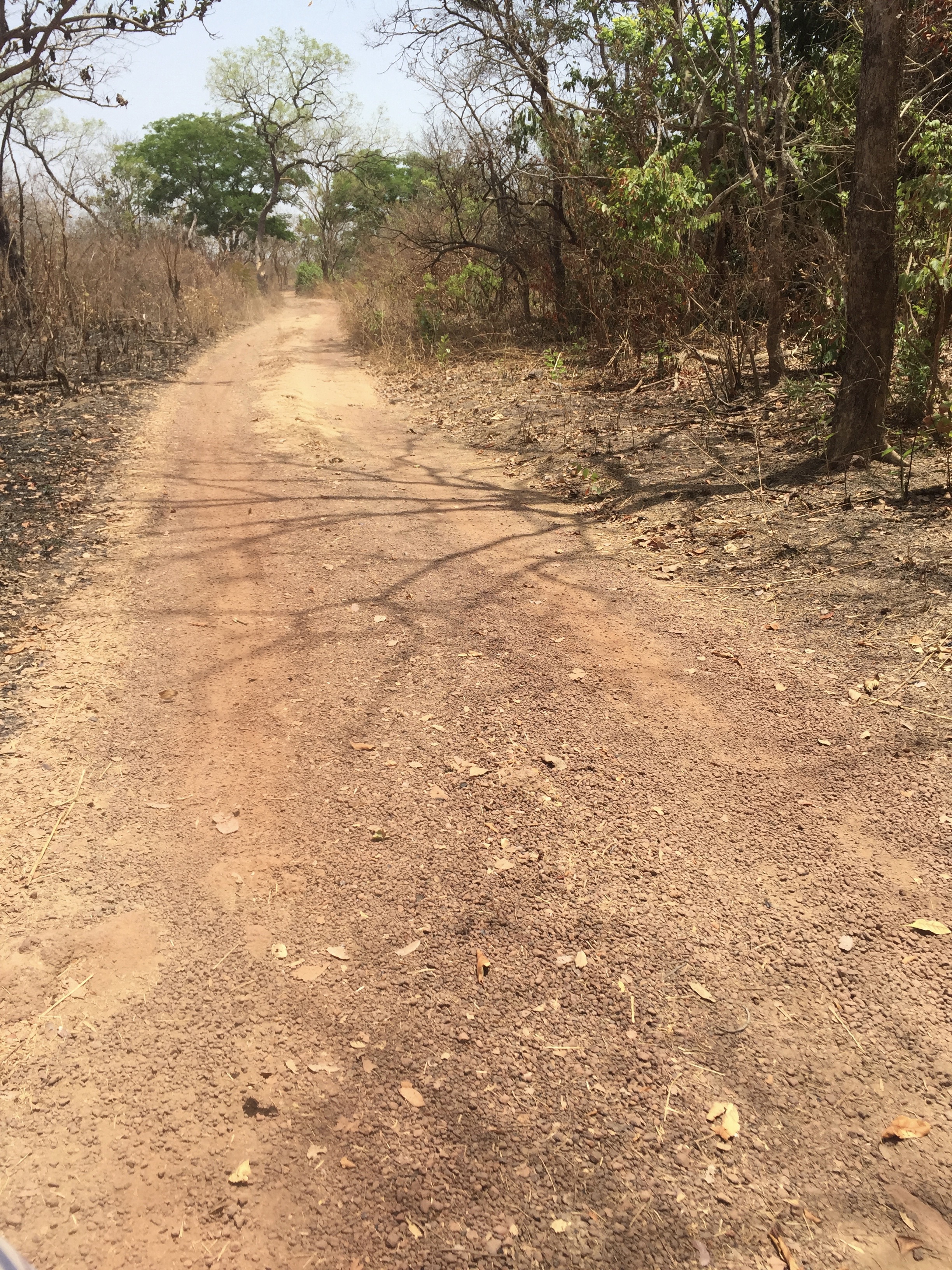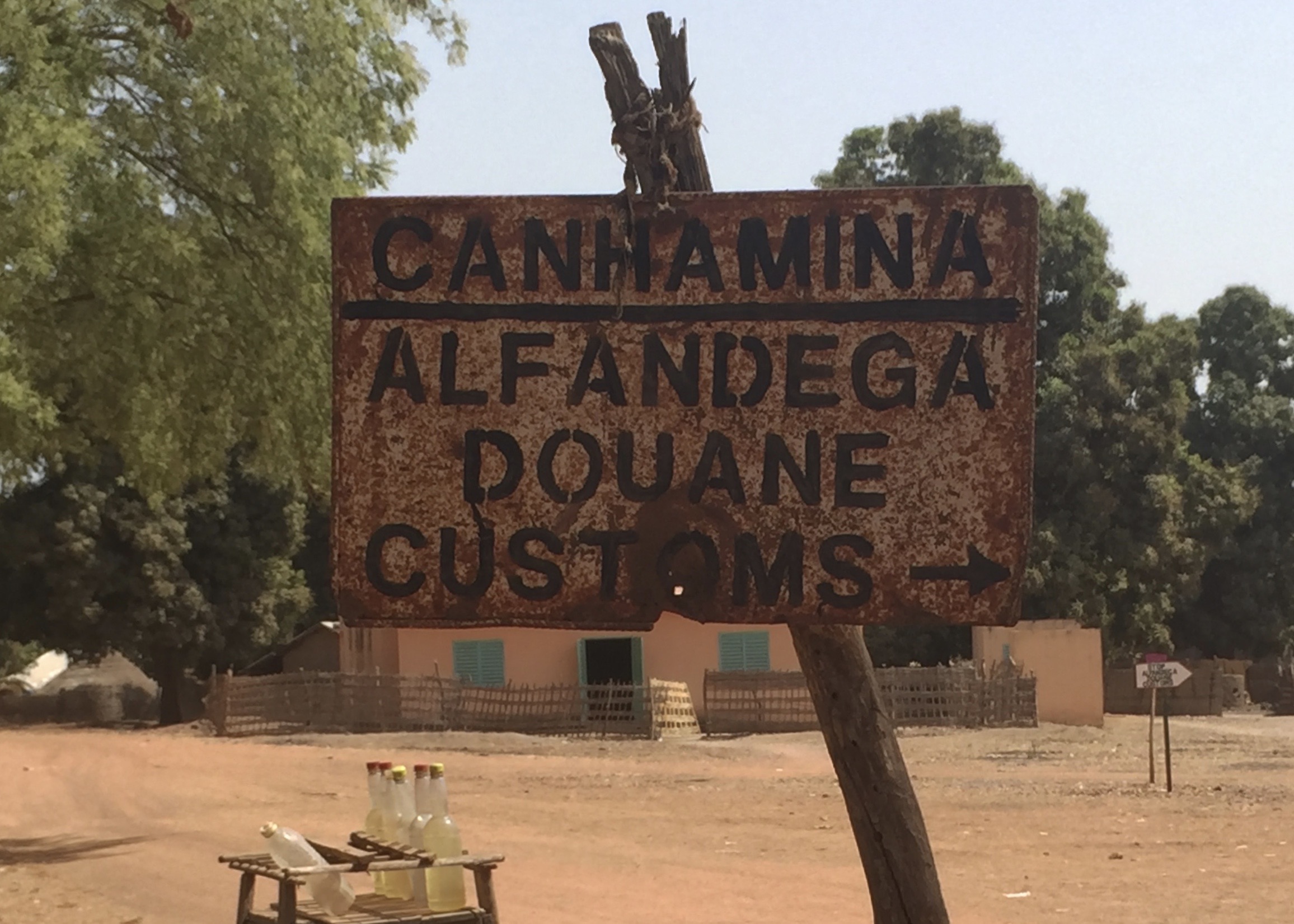Moussa Traoré
Moussa Traoré was born in Portuguese Guinea (Guinea-Bissau). His father was originally from Mali (then the colony of French Sudan), but fled first for Senegal and then Portuguese Guinea after the French tried to conscript him into the colonial military. During the war for independence, his family supported the Portuguese against the independence fighters. His brother was forced to fight in the Portuguese colonial military, which made his family lose support for the Portuguese.
While he was living in the village of Sare Baaka in Portuguese Guinea, the PAIGC independence forces came and attacked the village for collaborating with the Portuguese. Eventually, the instability made them flee Portuguese Guinea entirely. At first, his family settled in a border village (Kidely), but were worried that it was too close to the war, so they moved to Mampatim, about 15 miles from the border. His sister had married an official in Mampatim, so when they decided to move, they knew they would have family there.
According to Moussa, you had to be very careful crossing the border during the war. If the Portuguese saw you leaving the colony, they would assume you were with the PAIGC and would arrest or even kill you.
After the war, Moussa was able to get a certificate asserting his Senegalese citizenship. He told the Senegalese government he was originally from the border village of Medina Ndoondi (which had no health facilities to register births), and so claimed that as his place of birth to get legal documents. Because most people did not have documentation during the colonial period, the government did not aggressively question those looking for documentation.
Interview
I am Bambara [an ethnic group that makes up the majority of Malians]; my father was from Mali and went to Guinea-Bissau. At the time of the tirailleurs [West African French colonial soldiers], they wanted him to become a tirailleur [soldier] for the French colony, but my father did not not want so he left there and went to Guinea-Bissau. He was in Guinea-Bissau for a little, and then he left there and went to Medina Ndoondi near Coumbacara [in Senegal]; he was there for a little and then we left there and were in Sare Mamadi near Sare Baaka [in Guinea-Bissau]. We were there: me, my mother, my elder brother and our possessions and animals. We were with the Portuguese. We were with them. We were then until they took my older brother into the Portuguese army; there were four children of us left. The Portuguese gave us guns.
I was there until the PAIGC [independence forces] came at night and attacked Sare Baaka. Sare Baaka and Sare Mamadi [his village] were the same place. They attacked Sare Baaka because they knew Portuguese were in Sare Baaka and that the village was with the Portuguese, and the PAIGC and the Portuguese were fighting. They came into our village and hey shot at us and killed one person, the village chief’s son. When the PAIGC came, we ran away, and my elder brother went to untie the cows. One PAIGC soldier shot at him and thought he had hit him, but he did not. We took the cows and we came to Senegal near the border at Lingewa. We were there, we ran to come to the border. We slept by the border until morning and said we had been shot at. After that, the Portuguese came and asked us what had happened and we explaned that we were attacked and did not dare to shoot them back; they asked for the guns, but we had hid the guns. They asked the eldest of the group who said he shot but when they asked for proof he ran away and came to Senegal.
Then that morning the Portuguese came to ask us, troops came to attack Sare Baaka and came to shoot at us. Now we ran. Then the Portuguese told us we could not to go to Senegal, that we should go back to our village in Sare Mamadi. We went back but did not trust them, so we ran and came to Kideli [in Senegal] where the commissioner who was married to one of our [family’s] daughters was living. But my father said that it was too risky to stay there because it was close [to Guinea-Bissau], that we should come here in Mampatim. We left there; we came here. That is how I came here.
Did you have relatives here? What kind of relationship existed between you and the commissioner?
He married our daughter and was nicknamed the commissioner, but he was Senegalese. Now we have been living here for almost fifty years; since 1974/ 1975.

